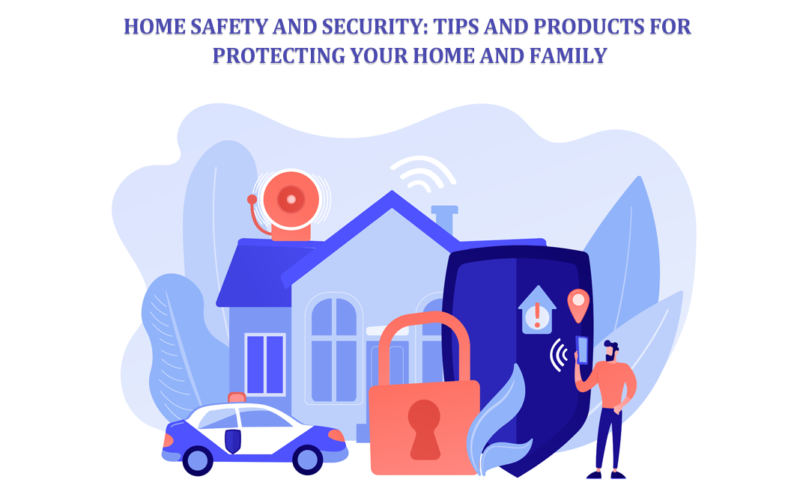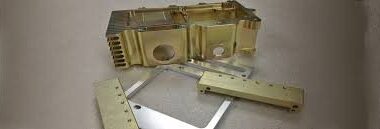Many believe it won’t occur to them, yet house break-ins are more usual than you thought.
Numerous homes get burgled daily, and many of these cases could have been stopped with simple home safety and security tips.
Here, we’ll talk about 7 simple home security tips to protect your home.
- Install a Home Alarm System
Installing a home alarm system means setting up a network of devices in your house to help keep you safe.
These devices include sensors on doors and windows that can sense if they’re opened, motion detectors that can spot movement, and a control panel to manage it all.
When the alarm system is armed, and someone tries to enter your home without permission, the sensors trigger a loud noise, like a siren, to scare away intruders and alert you or a monitoring center.
Some systems can also send notifications to your phone. It’s like having a watchful guardian for your home that lets you know if something suspicious is happening, helping you feel more secure and protecting your family and belongings.
- Secure the Doors
Secure your doors and make them strong and protected to keep your home safe. You can do this by adding strong locks, like deadbolts, that are hard to pick or break.
Reinforce the frames around the doors to make them sturdy. Consider using a doorbell camera or peephole to see who’s outside before opening the door.
If you have sliding doors with rubber mats, put a bar or rod in the track to stop them from being forced open.
Please ensure the hinges are on the inside so they can’t be removed from the outside. Keep doors well-lit and trim any bushes around them to remove hiding spots.
These steps help prevent unauthorized entry and keep you and your family secure inside your home.
- Glass Break Sensor
Adding glass break sensors means putting special devices in your home that can hear when glass is broken.
These sensors work like ears and listen for the sound of breaking glass, like when a window is smashed.
They send a indicator to your alarm system when they hear unusual sound. If your alarm system is armed, it will make a loud noise, like a siren, to alert you and scare away anyone trying to break in.
These sensors are necessary because they help detect if someone is trying to enter your home by breaking a window.
It’s like having an extra set of ears to tell if something is wrong and help keep your home safer from intruders.
- Light Up Your Home Exterior
Light up your home exterior by putting bright lights outside. Use outdoor lights near doors, pathways, and dark areas.
These lights turn on when they sense movement, scaring away potential intruders. Install motion-activated floodlights for extra brightness.
Choose LED lights because they last long and use less energy. Make sure all entry points have good lighting to deter burglars.
You can also use solar-powered lights if the wiring is complex. Well-lit exteriors help you see clearly at night and keep your home safer.
It’s like having a shield of light around your house that keeps terrible guys away and helps you feel more secure.
- Keep Valuables Out of Sight
Hide your valuable things so others can’t see them. Put jewelry, electronics, and important stuff in drawers, cabinets, or safes.
Keep curtains or blinds closed to block people from looking inside. If people can’t see your valuables, they won’t be tempted to steal them.
It’s like keeping a secret – if nobody knows, they can’t take it. This way, if someone looks in your windows, they won’t see anything worth stealing.
Keeping valuables out of sight helps protect your things and your home from being targeted by thieves.
- Keep Spare Keys in a Lock Box
Store extra keys in a strong box that can be locked. This box is like a mini-safe for keys.
Put the spare keys inside and lock the box with a code. Place the lock box in a hidden spot near your door, but not too noticeable. This helps you if you ever get locked out or need to let someone in.
Only people who know the code can open the box. It’s like having a secret way to enter your house without carrying keys.
Ensure the code is easy to remember but needs to be more evident for others to guess. Keeping spare keys in a lock box gives you a backup plan and keeps your home secure.
- Use Home Automation
Home automation means using intelligent devices to control things in your home. You can use your phone or voice to make things happen.
For example, you can turn lights on or off, adjust the thermostat, or even start your coffee maker without being there. It’s like having a remote control for your house.
You set up these devices to work together so they can do things automatically. For instance, you can make your lights turn off when you leave or have your door lock itself at a particular time.
It’s like teaching your home to do tasks on its own. Home automation can also help with security – you can get alerts on your phone if a sensor detects movement or a door opens.
It’s like your home talking to you when something’s up. Home automation makes life easier and more convenient; you can control things even when you’re not home.
Conclusion
These home security tips help make your home safer, but doing things daily is essential.
Lock doors and windows when you’re out or asleep. Be cautious with spare keys, and if you have an alarm, change the code yearly.
Along with the best tips, it keeps your family safe from risks. It’s about everyday actions, not just gadgets, that protect your home.



